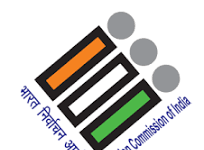
Prime Minister Narendra Modi will reshuffle his Cabinet today, but the government is going about its business as usual, with External Affairs Minister (EAS Jaishankar departing for a bilateral visit to Moscow via Tehran, with Afghanistan at the top of the agenda. The EAM will stop in Iran for fuel, and there may be an official meeting with the Iranian government on the sidelines.
According to Moscow-based sources, the EAM will meet with his Russian counterpart Sergey Lavrov in a bilateral meeting to strengthen ties and prepare for President Vladimir Putin’s upcoming visit to India for the annual summit. While the EAM will have firsthand knowledge of the Biden-Putin meeting in Geneva on June 16, the rise of the Taliban in Afghanistan and its impact on the Indian subcontinent and volatile Central Asia will be a source of concern. The EAM will also co-chair a joint commission meeting with the Russian Deputy Prime Minister to discuss ways to strengthen economic ties.
After returning from the G-20 foreign ministers meeting in Italy on July 2, the EAM discovered that India’s G-20 partners are keenly interested in the country’s economic recovery following the second wave of Covid-19. They were, however, confident that India would be able to defeat the pandemic through mass vaccination. The fact is that EAM Jaishankar discovered that the mood of G-20 partners toward India under Modi was far more positive than the country’s doomsayers.
The EAM paid a bilateral visit to Greece before the G-20 ministerial, which has always supported India in the UN and has been a close ally. Jaishankar’s visit coincided with bilateral naval exercises between the Indian and Greek navies in the Mediterranean. While Jaishankar made a point of visiting Greece to thank the country for its support, there was a subliminal message from India that the two countries can work together. Turkey, led by Erdogan, has allied with Pakistan, conjuring up past memories of Ottoman revival, and has declared war on India.
The EAM’s visit to Moscow will be beneficial as well, as both India and Russia are working to stabilise Afghanistan following the withdrawal of US-NATO forces. While the Taliban have launched an offensive in Kabul against the government of Ashraf Ghani, India has decided not to evacuate its citizens or diplomats from the country, which is on the verge of civil war. Moscow is also concerned about the Taliban’s rise, as it has a direct impact on Central Asia’s and beyond’s security. This is one area where even Tehran agrees, as an increase in Taliban atrocities could result in a flood of Afghan refugees flooding Iran’s Zahedan region.





